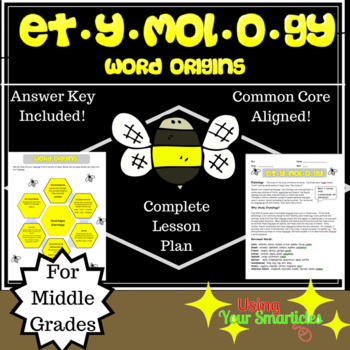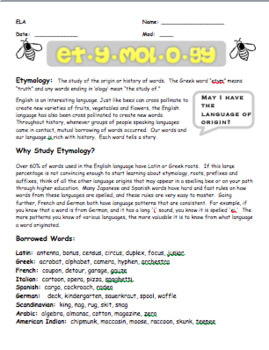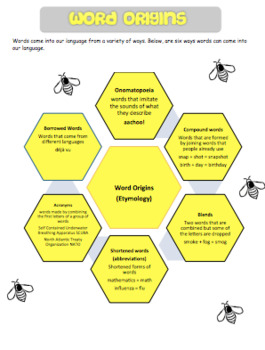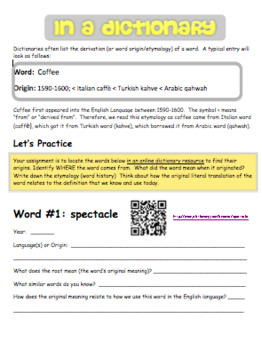Etymology (Word Origin) Lesson
- Word Document File
What educators are saying
Description
This is an instructional tool to introduce students to the concept of etymology (word origin). Students will learn that 60% of the words in the English Language come from Greek/Latin roots and that there are powerful decoding skills that come from knowledge of these roots and word derivation. Students will practice using a resource to explore word derivation (origins). How base words, prefixes, suffixes and root words enter into the picture and contribute to word meanings is also provided. Students are given 5 practice words with links and QR Codes to dictionary.com to assist them.
The increased rigor of CCLS as well as long range focus on the SAT make this lesson, topic and worksheet an extremely beneficial topic to introduce to students.
As always, thanks for ✨Using Your Smarticles✨
Looking for MORE Middle Grade Language Based Lessons?





